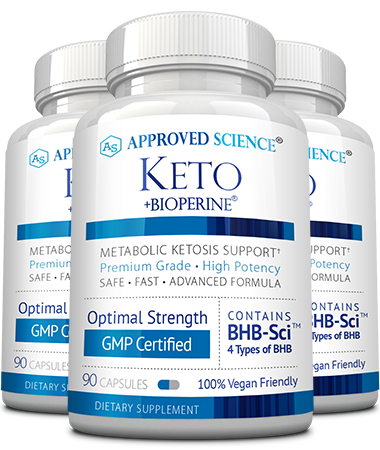Polycystic ovary syndrome (PCOS) affects one in ten women of childbearing age (1). Typically, women that suffer from PCOS experience hormonal imbalances and metabolic problems. These factors commonly contribute to weight gain. According to medical records, more than 50% of women with PCOS are obese (2). Most healthcare professionals agree that individuals experiencing PCOS should lose weight to help manage symptoms however women with PCOS know it is easier said than done.
In this article, we discuss why it’s so hard to lose weight with PCOS and provide suggestions on how you can speed up the process.
What is PCOS?
PCOS is a health condition categorized by hormonal disorders that negatively influence internal bodily functions. The condition can cause, among other things, enlarged ovaries and small cysts. Many medical experts state that individuals can consider PCOS a syndrome rather than a disease as it is responsible for an array of uncomfortable symptoms. PCOS is particularly dangerous as it impacts a variety of hormones. These impacts can lead to serious health concerns, namely infertility and unusual menstruation.
What Causes PCOS?
Doctors and medical professionals have a limited understanding of the causes of PCOS. The most common theory is that high levels of male hormones, such as androgen, impact the production of hormones in the ovaries and cause an imbalance in a women’s reproductive organs. These healthcare workers trace back an increase in androgen among PCOS patients to genes, insulin resistance, and inflammation. Some studies show that PCOS is an inheritable condition (3). Other studies note that the vast majority of women with PCOS suffer from insulin resistance (4). Finally, further studies report a link between high levels of inflammation and increase androgen in the body (5). These three factors may be the primary contributors to PCOS.
Reasons It’s Hard to Lose Weight With PCOS
The causes of PCOS can show a link between the condition and why it is so hard to lose weight if you suffer from it. Below, we explore the key reasons losing weight is more difficult for women with PCOS:
Increased Fat Storage
The role that insulin plays in the body is critical to the ways in which your body manages fat storage. Because women with PCOS typically experience insulin resistance, it can be incredibly difficult to lose weight. Insulin is primarily responsible for transporting glucose through the bloodstream to be used as energy. When one suffers from insulin resistance as a result of PCOS, the pancreas produces elevated levels of insulin that create an imbalance of glucose transportation and contribute to an increase in fat storage. This fat is generally stored in an individual’s midsection.
Boosted Appetite
Insulin is also responsible for stimulating an individual’s appetite. Women with insulin resistance will often note that they experience hunger pangs, cravings, and an increase in the desire to consume food products. Cravings are one of the most common contributors to weight gain as individuals are looking to satisfy their cravings as quickly as possible.
In addition, levels of hormones including ghrelin, cholecystokinin, and leptin are unusual among women with PCOS (6). These hormones are responsible for regulating one’s appetite. Disproportions among the levels of these hormones contribute to an increase in appetite and subsequent weight gain.
Frequent Blood Sugar Spikes
Weight gain is often a result of consuming the wrong types of food. A study assessing two groups of women with PCOS showcased a significant difference in the subject’s glycemic index (GI) between the groups based on the foods that they were consuming (7). An increase in one’s glycemic index is responsible for causing spikes in blood sugar levels. This unhealthy food consumption, irregular glycemic index values, and blood sugar increases all contribute to weight gain and difficulties losing weight.
5 Hacks to Help you Lose Weight With PCOS
There are steps to losing weight even with PCOS, provided that you combine several essential strategies and stick to them as best as you can. A combination of the strategies mentioned below should help you gradually achieve your goal weight and regulate the uncomfortable symptoms of PCOS.
1. Support Your Health With Supplements
One of the most efficient ways to lose weight with PCOS is to support your diet and health with a high-quality weight loss supplement. Approved Science® Keto is a clinically proven product that helps individuals induce a state of ketosis that can increase the rate at which one loses weight (8). The formula contains accurate concentrations of key ingredients necessary to speed up a state of ketosis, which is a common and trendy weight loss program in the health and wellness industry.
2. Curb Your Carb Intake
Carbs contribute to weight gain and make it difficult to shed pounds. Lowering your carb consumption is critical to helping you lose weight with PCOS. As women with PCOS suffer from insulin resistance and irregular blood sugar levels, there is a particular concern around the consumption of carbohydrates. This is because the body is less capable of turning those unhealthy carbs into usable energy. Instead, the body stores the carbs as fat.
3. Pack Your Diet With Fiber
Fiber is a food source that can promote feelings of fullness and satiety. Therefore, it is important to supplement your healthy diet with plenty of fiber to offset one’s increase in appetite as a result of PCOS. Other scientific studies have shown a link between fiber intake and lower insulin levels (9). In this way, fiber can contribute to less severe symptoms of PCOS and increase the body’s ability to lose weight.
4. Prioritize Your Protein Sources
Protein plays a crucial role in stabilizing one’s blood sugar levels. It also increases feelings of fullness. Studies surrounding women with PCOS highlight that subjects that received more protein in their diet experienced greater weight loss results than those with lower amounts of protein in their diet (10).
5. Consume More Healthy Fats
This tip may seem counterintuitive as why would one want to consume fats while hoping to lose fat? The reason is that most people consume unhealthy fats. There are, however, healthy fats that are essential for your body and help contribute to weight loss. Healthy fats increase feelings of fullness and may contribute to a diet of fewer calories (11). Furthermore, healthy fats support the body’s internal functions responsible for supporting weight loss and reducing weight gain.
You Can Do It!
The symptoms and causes of PCOS make it difficult for women who experience the health condition to lose weight. Insulin resistance and an imbalance in one’s appetite are primary contributors to weight gain among women with PCOS and make it extremely tough to stick to a healthy lifestyle. That said, high-quality keto supplements and a diet that cuts our carbs and includes healthy foods are the key strategies to promoting gradual weight loss among women with PCOS. You can also couple these strategies with regular exercise to ensure that you support your weight loss goals as efficiently and effectively as possible.


